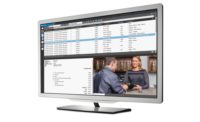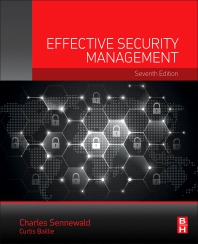As legalized medical and recreational use of marijuana spreads from state to state, the security industry has profited from sales that have been both COVID-19- and recession-proof. U.S. cannabis sales are predicted to reach $26.5 billion this year and double by 2030. Supporting those numbers is a growing infrastructure of cultivation, processing, distribution and retail facilities. By law, each must install comprehensive security systems that regulate and document access to product.
C3 Industries, headquartered in Ann Arbor, Mich., is a multi-state cannabis operation with cultivation, manufacturing and retail locations. The company crafts, brands and sells premium cannabis products, with facilities in Michigan, Massachusetts, Missouri and Oregon. Currently, C3’s expanding enterprise encompasses 250,000 square feet of grow and processing space in operation or the final stages of completion. More than 20 retail stores are now open or under construction.
In Missouri, which legalized cannabis for medical use in 2018, C3 has opened two production facilities (manufacturing and cultivation) and five retail locations. The St. Louis office of national security integrator Security 101, owned and operated by Gary Kopp, won the bid through a general contractor, Arco Construction Co., to install the electronic security systems at the cultivation site. The 40,703-square-foot indoor facility includes 37,886 square feet of production (grow) space, with the balance used for offices. Project specs dictated using a PDK access control solution to secure the entire property.
C3 drove the specification for a PDK system. Jeff Stumbaugh, a construction manager at the company, explained that C3 uses PDK at all its locations. It was deployed at the company’s first property in Portland, Ore., and has been the standard ever since.
“There is no other access control system, in my opinion,” Stumbaugh said. “The vendor we originally worked with, Rob Reynolds from Asset Protection Partnership, headquartered in Forest Grove, Ore., was a PDK man, and I was already familiar with PDK before I joined C3. There’s been no need to evaluate other options, as there’s not much PDK can’t do.”
The consistent use of the PDK platform across all sites allows C3’s security team to manage access control as an enterprise solution from a centralized mobile interface. As new buildings are constructed and readers installed, the system seamlessly expands. New doors appear within the PDK.io interface as soon as they’re functional and online without having to provide manual software updates.
Kopp explained that while the integrator won the bid, his St. Louis office had never worked with PDK. However, with 55 Security 101 dealers across the country, many sell and promote PDK as a primary product line. With their guidance, he knew he had the resources to support the project. It required securing 13 interior and exterior doors with PDK’s high-security Red Readers. PDK’s Red line features OSDP secure connectivity and multi-drop cabling, allowing one cable length to support multiple readers. Kopp’s technician said PDK was one of the most straightforward systems he has ever installed and manufacturer support was superb.
The Red door readers used at the C3 property can read Bluetooth mobile credentials, cards and fobs, and include a PIN keypad. “I’m a key fob guy,” Stumbaugh said. “I have a fob I carry and it lets me in wherever I go, anywhere in the country. However, we are all set up for mobile, and some employees prefer to use their phones instead. It’s a matter of personal choice.”
Once the readers were in place, Stumbaugh’s team took care of system programming. No training was needed, as the company’s operations, HR and IT personnel were already familiar with enrolling employees, setting permissions and managing the system. In this case, the initial programming was handled onsite, but PDK offers the ability to handle all tasks remotely, including programming, diagnostics, administration and security management.
Stumbaugh said this complete mobility is one of the system’s “coolest” features. It allows him and other authorized administrators to view the entire system’s status on their phones and unlock doors with a push of a button. Stumbaugh himself has benefited from this convenience. There have been instances where he has found himself locked out, and by calling a colleague with admin privileges, that person has immediately unlocked the door for him from 500 miles away.
Laws for securing cannabis properties vary by state, and technical specifications for access control are vague. However, all states require that product be kept secure in buildings featuring commercial grade locking systems, employee access be tightly controlled, and that accurate logs be kept detailing who has had access to the facility and product.
Stumbaugh said he has never had to provide reporting to a regulatory agency but sleeps well knowing that PDK can generate whatever reports are necessary for compliance purposes. “We’ve played with the system enough to know that it’s running in the background, doing its thing, and the reports are there if we need them,” he said.
Unlike access control regulations, cannabis operators must abide by specific and stringent surveillance system requirements. Most states define a minimum camera resolution (at least 1280 x 720), frame rate (no less than 15 FPS), system storage and viewing capabilities, and mandate recording at all entrances, exits, fences and gates from indoor and outdoor perspectives, 24/7. At the C3 cultivation facility in Missouri, Security 101 secured 13 doors with access readers; by contrast, it installed 162 cameras. Multiply that device density across all C3 properties, and that’s a lot of cameras.
Hanwha’s WiseNet WAVE video management platform is C3’s preferred solution. “Much like our loyalty to PDK for access control, WiseNet is the only video surveillance system to use,” Stumbaugh said. It is deployed at all C3 locations.
A recently launched integration between the two platforms can bookmark footage whenever a user scans a badge at a specific door, allowing administrators to search for certain events. Door states may be controlled from within the WAVE platform, and video streams can soft-trigger access control events, such as initiating a lockdown. The integration is included with hosting subscriptions for no extra charge.
Despite the upside, security integrators are often intimidated by entering new markets. The cannabis market is as fresh and uncharted as it gets. However, Stumbaugh said, “Securing a cannabis facility isn’t that different from securing an office building, a military building, or a government building.”
This is encouraging for those in security sales who may be concerned that designing and installing security systems for companies like C3 is outside their wheelhouse. “It’s been an excellent industry for us and other Security 101 offices around the country,” Kopp said. “They all need cameras, access control and alarm systems, and that’s what we do. We’re hopeful that after our successful project in St. Louis, C3 will consider working with our other offices as they expand. We offer a combination of national coverage and local ownership, so we’re a great fit. We can make decisions locally without our customers having to deal with a remote, corporate office.”
For an office that had never installed PDK before, Kopp’s team’s success is a testament to the product’s simplicity, Stumbaugh said. “They did an excellent job. There were no problems. I have to say; we set a new standard as a project, overall.”










